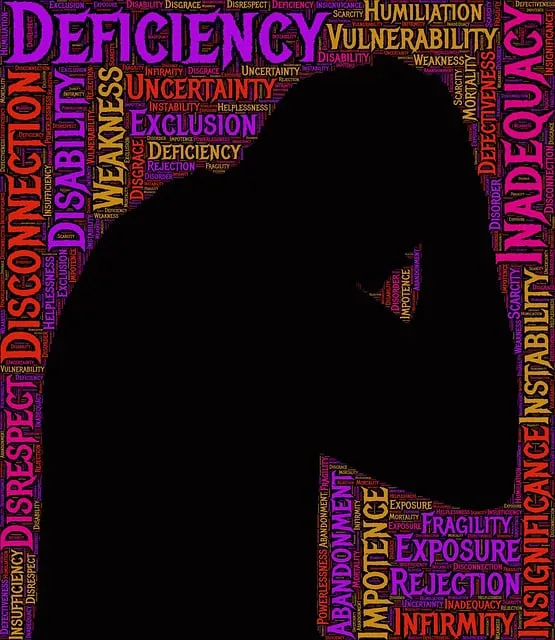Highlands Ranch Kaiser Permanente (HRKP) offers comprehensive mental health services tailored to diverse demographics, focusing on early intervention and evidence-based practices. Their evaluation approach combines quantitative and qualitative methods, including client feedback surveys, to measure program success and identify areas for improvement. By analyzing data from these evaluations, HRKP can tailor programs like Community Outreach and Inner Strength workshops to address unique community mental health needs, fostering a culture of continuous learning and enhanced well-being support.
“Highlands Ranch Kaiser Permanente has pioneered innovative mental wellness programs, aiming to enhance community well-being. This article explores effective evaluation methods for these services, a crucial aspect of their success. We delve into various techniques, from client feedback surveys and data analysis to continuous improvement strategies. By examining these approaches, we uncover insights that drive enhancements in Highlands Ranch Kaiser Permanente’s mental health services, ensuring they meet the evolving needs of the community.”
- Understanding Mental Wellness Programs at Highlands Ranch Kaiser Permanente
- Evaluation Methods for Measuring Program Effectiveness
- Client Feedback and Satisfaction Surveys: A Key Tool
- Data Analysis Techniques to Uncover Trends and Insights
- Continuous Improvement: Using Evaluation Findings to Enhance Services
Understanding Mental Wellness Programs at Highlands Ranch Kaiser Permanente

Highlands Ranch Kaiser Permanente (HRKP) recognizes the importance of mental wellness as an integral part of overall health and well-being. They offer a comprehensive range of mental health services tailored to meet the unique needs of their community. The program focuses on early intervention, prevention, and evidence-based practices to promote mental resilience and reduce stigma associated with seeking support. HRKP’s approach combines individual therapy, group support sessions, and innovative coaching programs that cater to diverse populations, including children, adolescents, adults, and older adults.
The Mental Wellness Coaching Programs Development at HRKP is a game-changer in delivering personalized care. Through these programs, mental health professionals employ various assessment tools, such as the Risk Assessment for Mental Health Professionals, to identify risk factors and tailor interventions accordingly. By fostering open conversations and providing a safe space, these initiatives enhance mental health awareness and encourage individuals to take charge of their well-being.
Evaluation Methods for Measuring Program Effectiveness

Highlands Ranch Kaiser Permanente mental health services leverage various evaluation methods to measure program effectiveness. These include quantitative assessments, such as surveys and data analysis, which track participant demographics, service utilization, and changes in symptoms or attitudes related to mental health. Qualitative methods, like interviews and focus groups, offer deeper insights into participants’ experiences, perceptions of support systems, and the impact of specific interventions.
Integrating Stress Reduction Methods, Mental Health Education Programs Design, and Mental Illness Stigma Reduction Efforts within these evaluations is paramount. Quantitative metrics can gauge the reach and frequency of stress-reduction techniques taught, while qualitative feedback illuminates how participants apply learned strategies in daily life. Similarly, mental health education programs designed with a focus on stigma reduction can be evaluated for changes in attitudinal measures pre- and post-intervention, contributing to a holistic understanding of program effectiveness.
Client Feedback and Satisfaction Surveys: A Key Tool

Client Feedback and Satisfaction Surveys are an indispensable tool in evaluating mental wellness programs, particularly within healthcare settings like Highlands Ranch Kaiser Permanente. These surveys provide valuable insights into the effectiveness and impact of mental health services, allowing for continuous improvement and refinement of offered therapies. By gathering direct feedback from clients who have undergone various mental wellness interventions, healthcare providers can assess satisfaction levels, identify areas of excellence, and pinpoint aspects that require enhancement.
The data collected through these surveys often highlights key factors such as improved mood management, enhanced emotional healing processes, and increased confidence among participants. This qualitative assessment complements quantitative metrics, offering a holistic understanding of the program’s success in meeting client needs. Incorporating client feedback into evaluation methods ensures that mental wellness programs remain responsive to individual experiences, fostering an environment conducive to lasting emotional well-being.
Data Analysis Techniques to Uncover Trends and Insights

Highlands Ranch Kaiser Permanente mental health services can greatly benefit from robust data analysis techniques to uncover trends and insights within their programs. By employing qualitative and quantitative methods, such as surveys, interviews, and statistical analysis, the organization can gain a comprehensive understanding of client experiences, treatment effectiveness, and areas for improvement. This strategic approach allows for evidence-based decision making, ensuring that self-care practices and depression prevention initiatives are tailored to meet the unique needs of the community they serve.
For instance, analyzing participant feedback through open-ended questions or sentiment analysis can highlight recurring themes related to Mental Wellness. Identifying common challenges faced by individuals seeking mental health support enables program coordinators to adapt their strategies accordingly. Additionally, statistical techniques like regression analysis can reveal correlations between specific interventions and positive outcomes, providing valuable insights for future planning. Incorporating these data-driven methods not only enhances the quality of services but also fosters a culture of continuous improvement within Highlands Ranch Kaiser Permanente’s mental health programs.
Continuous Improvement: Using Evaluation Findings to Enhance Services

Highlands Ranch Kaiser Permanente recognizes that continuous improvement is key to enhancing mental health services. Evaluation findings play a pivotal role in this process by providing valuable insights into program effectiveness and areas for growth. By systematically assessing initiatives like the Community Outreach Program Implementation, Inner Strength Development workshops, and Public Awareness Campaigns Development, the organization can tailor its approach to better meet the unique needs of its community.
This iterative process encourages a culture of learning and adaptation, ensuring that mental health services evolve with the latest research and community feedback. Through rigorous evaluation, Kaiser Permanente in Highlands Ranch strives to optimize outcomes, increase accessibility, and foster a more supportive environment for those seeking mental wellness support.
The evaluation of mental wellness programs at Highlands Ranch Kaiser Permanente is a multifaceted process that leverages client feedback, data analysis, and continuous improvement methodologies. By employing these techniques, the organization ensures that its mental health services remain effective and aligned with the evolving needs of its community. Through client satisfaction surveys and rigorous data analysis, trends and insights are gained, enabling targeted enhancements to care delivery. This strategic approach not only improves outcomes for patients but also solidifies Highlands Ranch Kaiser Permanente’s commitment to exceptional mental wellness support within its community.






